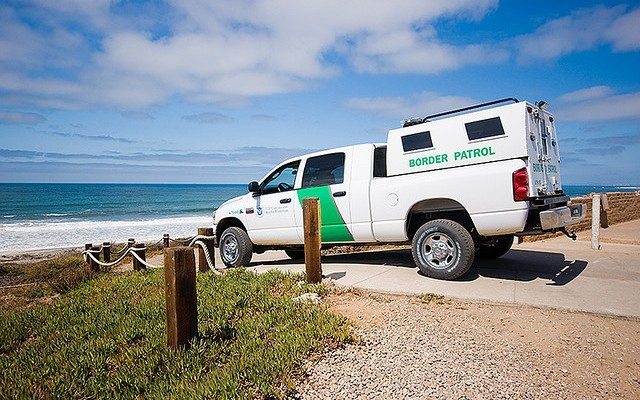 Image Courtesy of [Brian Auer via Flickr]
Image Courtesy of [Brian Auer via Flickr]
News
Does a Mexican Teen Killed by Border Patrol Have Constitutional Rights?
On October 12, 2012, 16-year-old Jose Antonio Elena Rodriguez lay dead on the Mexican side of an international street with almost a dozen bullet holes marring his body. His tragic death has sparked a legal battle that continues to this day.
The shooter, a United States Border Patrol (USBP) Agent named Lonnie Swartz, said he’d fired his .40-caliber pistol through the fence after witnessing a group of people, including Elena Rodriguez, throwing rocks at agents across the border and endangering their lives. The issue is that his description of events may not have been accurate. Two witnesses on the Mexican side of the fence swore that Elena Rodriguez was actually walking down the street when the other youths ran past just before the shooting started.
If there even was a crime, the punishment surely didn’t seem to fit it. The American Civil Liberties Union (ACLU) agreed, calling the boy’s death yet another example of excessive force used by USBP agents and demanded action.
Two-year anniversary of the death of then 16-year-old Jose Antonio Elena Rodriguez in Nogales, SON. pic.twitter.com/2d9jdBDoaO
— Yoohyun Jung (@yoohyun_jung) October 11, 2014
Fast forward three and a half years later and Elena Rodriguez’s case still remains suspended in limbo. The ACLU filed a lawsuit in Tucson against agent Lonnie Swartz on behalf of Araceli Rodriguez, the boy’s mother, but a federal judge is considering throwing it out. Why? According to the Associated Press, it’s on the grounds that since the boy was shot across the U.S.-Mexico border and not in the U.S. at the time, he therefore wasn’t under the protection of the U.S. Constitution.
Lee Gelernt, deputy director of the ACLU’s Immigrants’ Rights Project, argued in support for Elena Rodriguez’s family telling the AZCentral,
A Border Patrol agent can put his gun up to the fence and shoot a teenager, and the Constitution has nothing to say about that? Everything that took place, except the bullet that killed him, happened in the U.S.
However, Sean Chapman, the private attorney representing Swartz, argued Tuesday before U.S. District Judge Raner Collins that Swartz did not violate Elena Rodriguez’s constitutional rights because the Constitution does not extend to a Mexican citizen in Mexico. There’s a chance Judge Collins could agree with him.
According to the AP, there’s currently case law from the 5th U.S. Circuit Court of Appeals that unanimously decided that Border Patrol agents shooting on U.S. soil cannot be sued if they kill someone across the border in Mexico. While Collins isn’t bound to this ruling, since Elena Rodriguez’s case is in the 9th circuit and the 5th circuit doesn’t take precedent there, it’s something to consider.
Another alarming factor is the glaring similarities between this case and the death of Trayvon Martin. Both teenage boys were around the same age, 16 and 17 respectively, and were portrayed as thugs despite evidence to the contrary. They were also both made symbols for their communities and mourned by thousands, and so far neither one has received any justice for their deaths. Americans are beginning to care when young black boys are killed for no reason (i.e. Baltimore and Ferguson), but apparently our level of awareness hasn’t yet extended to our southern neighbors.
It’s unclear what the judge will decide in Elena Rodriguez’s case, but one thing is clear: our nation is desperate need of more accountability when it comes to these agents and our police forces, even if they are the ones responsible for protecting us.








Comments